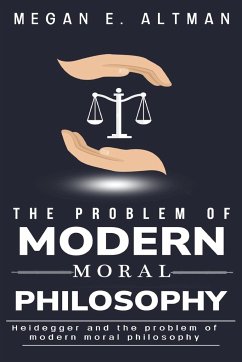Many commentators on the work of Martin Heidegger think that Heidegger neglects ethics. The standard criticism is that, since Heidegger has nothing positive to say about ethics, he has nothing to contribute to modern moral philosophy, and this marks his greatest shortcoming as a philosopher. Two prominent criticisms of Heidegger's position in moral philosophy motivate this standard criticism contending that the elements in Heidegger's project of fundamental ontology that are anti-ethical or, at best, morally ambiguous. The first criticism holds that Heidegger's phenomenological descriptions of everydayness and authenticity ignore morally relevant details of the individual's obligations to others. On this view, Heidegger's neglect of the obligations one owes to others precludes practical forms of moral responsibility. The second holds that Heidegger's account of the conditions for the possibility of being an authentic agent rests on an exceptional and eccentric condition that has been detached from the social world. According to this critique, Heidegger is insensitive to the normative dimensions of moral-political modes of existence
Hinweis: Dieser Artikel kann nur an eine deutsche Lieferadresse ausgeliefert werden.
Hinweis: Dieser Artikel kann nur an eine deutsche Lieferadresse ausgeliefert werden.







